Coronavirus our response
The world feels as though we are waiting. In the space of a couple of weeks it feels like normal life has been turned upside down by a virus that has become the centre of our world.
We are still watching and waiting. As events are cancelled across the UK, travel restricted and many organisations already asking staff to work from home we are wondering how to respond.
As a charity supporting arts and health organisations in London one of our main goals is to bring people together. To exchange ideas, to showcase brilliant work and to make connections and form partnerships.
However, our first priority is to keep everyone healthy and safe, this includes mind and body. We know for many that the threat of the virus can cause extreme anxiety and we don’t want anyone to be put into a situation where they feel obliged to attend public events with fear hanging over them.
It is for this reason that we are postponing Creativity and Wellbeing week this year.
In many ways if we, as a country went into lockdown it would make life a little easier. The choice would be taken away from us. I know many of my friends, family and colleagues are currently in the grey area of wondering if they should risk their health.
We are monitoring the situation very carefully and will keep people up to date with official guidance, particularly when it involves events we are involved with.
Working from home: Working in isolation may be nothing new for many of you, particularly those in smaller organisations. (Did you know that London Arts and Health has no office, so we are officially remote workers!) But for those who are being told or choosing to work remotely, it can feel lonely.
Make sure you separate work and home, you may be forced to work from your bedroom or the sofa but at the end of a work day pack up your stuff and move it out of the way!
Take breaks, do the tea run. It is all too easy to stay on the sofa but make sure you are taking regular breaks, get outside for a walk at lunchtime, even if it is just to the end of the road and back.
Keep communicating with friends, colleagues, the cat. People underestimate how different working is without people to chat to or bounce ideas off. Make a regular date to check in with a colleague or fellow arts worker / artist or set up a Whatsapp chat group.
Plan: It is hard to plan when things are changing quickly, but you can feel a little more prepared by looking at your work plans for the next few weeks and working out what is necessary and what can go. Do you have the right policies in place around remote working, events or managing sickness? Do you need to write up contingency plans? There are lots of resources to help you. We find the NVCO resources useful.
Communicate: When you are in a position to tell any funders, partners, stakeholders and beneficiaries, what is happening, let them know and keep communicating. Others may be looking to you before making their own decisions even if you are not in the position to make choices try to keep talking.
Look after yourself: Keep an eye on the news but also try to step away from constant messaging. It can be all too tempting to keep looking at twitter, but it can also increase anxiety. Get your news from official sources like the Govt or WHO but use your networks to share your worries and get peer advice others are likely to be feeling them too.
We know many of you are freelance and depend on events and festivals. Keep an eye out on financial support you may be able to claim; advice is a bit hazy at the moment.
Connect: For us, as a charity and a festival, our biggest concern is the threat of isolation that many of us may face in the next few weeks. [LL2] Arts and health activity often has connectivity at its heart. We know that as powerful as creative activity is, it is also the being part of something and being within a group of people that can have real wellbeing and health benefits.
As activities and events possibly get cancelled, we worry that people who already spend lots of time alone because of poor health may face more time without human contact. If you do run activities which reach those who find it most difficult to access care, are there ways you can keep in contact? If you are in a high-risk category, how best can people support you? With the practical as well as the emotional.
One of the positives to come out of this has been the outpouring of human kindness. I have seen many offers of deliveries, befriending and food in my local area. Just make sure you are sticking to best practice when it comes to keeping people safe.
Technology: This is a real chance to see technology doing good. One of the most important uses will be to keep the communication going. Look into ways of video conferencing Zoom, Google, Skype and Powwow are all excellent ways of staying in face to face contact. We will be doing lots of research around how artists and arts organisations can use technology to hold virtual workshops/ stream performances. Let us know if you have any suggestions.
We will be doing all we can to provide support and resources on this page and on our main LAHF website so if there is anything you want us to include that may support you then get in touch. https://www.artscouncil.org.uk/news-and-announcements/coronavirus-update
